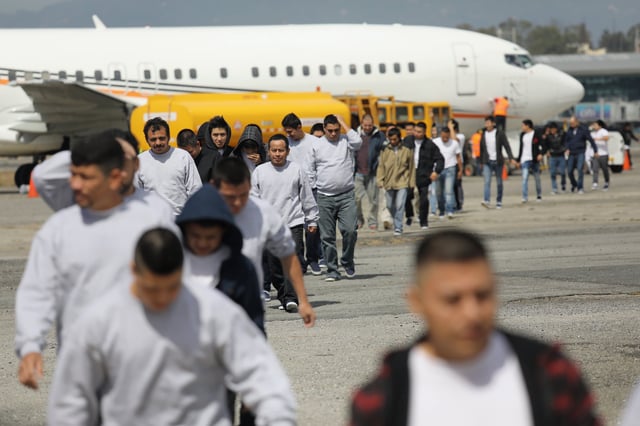Overview
- Trump's proposal aims to deport up to 20 million undocumented immigrants, a plan criticized for its logistical and economic feasibility.
- Economists and industry leaders warn that mass deportations could severely impact sectors like construction, which heavily rely on immigrant labor.
- The cost of executing such a large-scale deportation is estimated to be in the hundreds of billions, with significant infrastructure and workforce expansions required.
- Republican lawmakers are largely avoiding detailed discussions on the plan, focusing instead on general immigration and border security issues.
- Critics highlight the potential humanitarian and constitutional concerns, noting the severe impact on families and communities.



